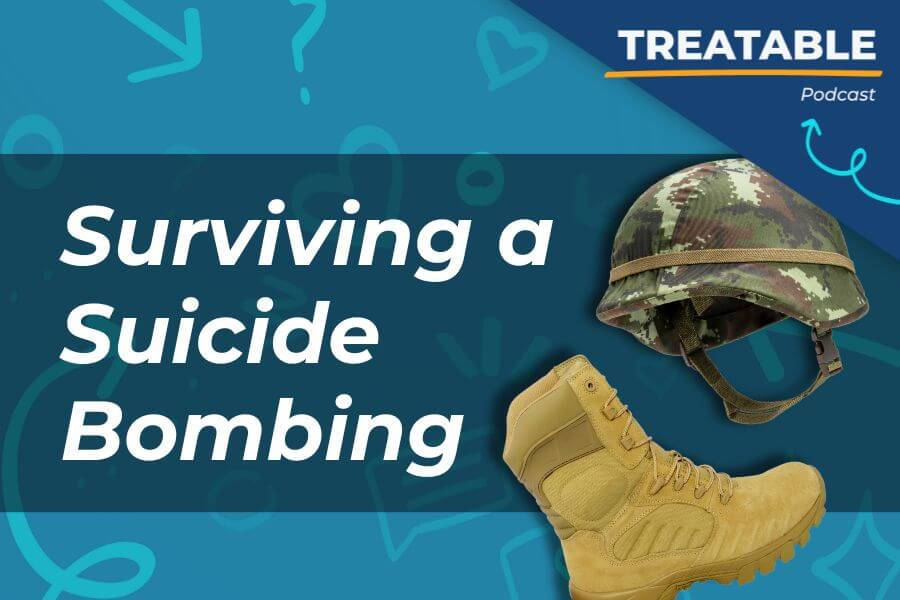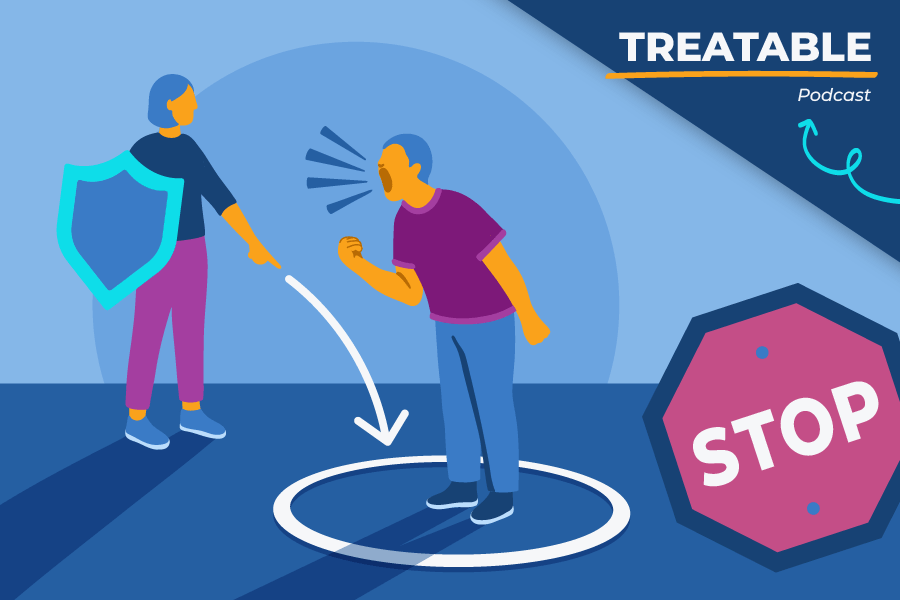In an instant, everything can change. A moment that alters the course of your life forever can swiftly throw you into a whirlwind of pain and struggle.
But beyond the initial shock and turmoil lies the long journey of recovery. How does one navigate such trauma, and what does true resilience look like?
In a gripping episode of the Treatable Podcast, host Clint Mally dives into these questions with special guest Brian Fleming, a combat-wounded war veteran who overcame unthinkable circumstances.
Brian shares his harrowing yet inspiring story, offering a powerful testament to the human spirit and the path to healing.
Setting the Scene
Clint Mally opens the episode by welcoming listeners to the Treatable Podcast, which focuses on various mental health challenges.
Clint emphasizes that while everyday listeners may never have experienced extreme trauma like Brian’s, they can certainly draw inspiration and valuable insights from his journey of recovery.
Meet Brian Fleming
Brian Fleming served in the U.S. Army and was deployed to Afghanistan with the 10th Mountain Division.
His life took a dramatic turn after surviving two close encounters with death, including a suicide bombing that left him with severe injuries.
Despite these setbacks, Brian emerged on the other side of these events changed but unbroken.
The Road to Recovery
Brian vividly recalls the moments leading up to and following the suicide bombing.
Blown off the road and severely injured, he faced an arduous recovery journey that included 14 months of medical treatment for his burns and other injuries.
Throughout this time, Brian had to grapple with both physical and mental challenges.
He shares his experiences, including undergoing a brutal pain management procedure called debridement, which involved removing burnt skin to prevent infection.
Emotional and Mental Impacts
While Brian’s physical injuries were severe, the psychological impact was equally challenging. He experienced symptoms of post-traumatic stress but remained open about his trauma.
He emphasizes that trauma affects everyone differently, and there’s no single right way to cope. Understanding individual responses to trauma is crucial in offering the right support and intervention.
Finding Meaning and Mentorship
A turning point in Brian’s recovery was meeting Dave Reaver, a Vietnam veteran who had also survived severe injuries.
Dave’s mentorship and approach to sharing his story inspired Brian to do the same.
This encounter provided Brian with a sense of purpose, enabling him to find meaning in his suffering and embark on a mission to help others by sharing his experiences.
The Role of Early Life Experiences
Clint and Brian delve into how childhood experiences can shape one’s response to trauma.
Brian’s tumultuous upbringing, marked by his parents’ violent divorce and his father’s imprisonment, prepared him emotionally for the adversities he would later face in the military.
These early life challenges taught him survival instincts and fostered a resilience that proved invaluable during his recovery.
The Importance of Relationships
Brian highlights the critical role his wife played in his recovery journey. They got married just months before his deployment, and her unwavering support provided a foundation of stability and love.
For those who may not have such support, Brian stresses the importance of seeking mentors and building relationships that foster resilience.
Final Thoughts
Brian’s story underscores the importance of finding meaning, mentorship, and a mission in the aftermath of trauma.
His journey is a testament to the resilience of the human spirit and the transformative power of sharing one’s story to inspire and help others.
Resilience is not a linear path but a winding journey filled with ups and downs.
Brian Fleming’s story offers hope and practical insights for anyone grappling with trauma.
For those seeking to make a difference by sharing their own stories, Brian provides valuable resources and guidance through his platform, “Use Your Story.”
Additional Resources
If you want to learn more about Brian Fleming or book him for speaking engagements, visit blownupguy.com. For those interested in using their own stories to inspire others, Brian offers a free resource at useyourstory.com.
Understanding trauma, finding support, and connecting with a broader mission are all crucial steps in the healing journey. These steps make trauma not just survivable but treatable.
Credits
This episode of Treatable was edited by Daniel Lopez and written by Alexandra Krueger.
The theme song was created by Sebastian Gonzalez, and the cover art by Joel Daniel.
If you found value in this episode, please leave a five-star review to help spread mental health awareness.
Brian’s story and the wisdom he shares are a beacon of hope for anyone facing the challenges of trauma. Healing is not just possible—it’s within reach for everyone willing to find their path.




